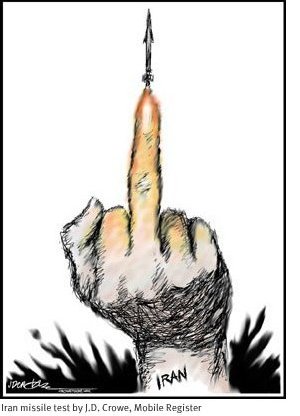Archives
AND MORE...

Yes, You Can!
_____________________

The Accidental Emperor
_____________________

Iran Cleaning Up
_____________________

Risk-Averse Spies
_____________________
March 11, 2012
Yes, We Can (Then Again...)
Senior U.S. officials doubt Washington's ability to properly gauge the progress of Iran's nuclear program and say the U.S. would not necessarily know if Tehran started secretly building an atomic bomb (see below).
To which we would say, uh, duh, and welcome to the world of intelligence gathering.
As for the doubts contradicting Washington's contention that the U.S. will know when Iran has "crossed a red line" and that sanctions have failed, we will repeat what we have been saying for years: Intelligence gathering and analysis is basically a crapshoot. It is not an exact science, but rather educated (or so one would hope) guesswork, based on a multitude of factors that are always changing.
People need to keep this in mind, especially when criticizing the Intel community in hindsight. And leaders need to factor in the possibility of error, when making their decisions.
When national security and survival are involved, better to err on the side of being overly-cautious than not being cautious enough, which is why President Obama et al can play political games with the issue of Iran, and the Prime Minister of Israel et al CANNOT.
Jerusalem Post | March 11, 2012
'US Might Not Know If Iran Started Building Nuke'
By JPost.com Staff

'LA Times' quotes senior US officials as saying Washington not necessarily able to detect Tehran's clandestine activities.
Senior US officials doubt Washington's ability to properly gauge the progress of Iran's nuclear program and said that the United States would not necessarily know if Tehran had started secretly building an atomic bomb, The Los Angeles Times reported on Sunday.
The doubts of the "senior officials familiar with US intelligence and spying capabilities in Iran" contradict Washington's contention that US satellites, sensors and spies will know when Iran has "crossed a red line," marking the failure of efforts to thwart Tehran's nuclear ambitions through sanctions.
Senate Intelligence Committee chair Dianne Feinstein was quoted by the Times as saying that Iran has been found to have secret uranium enrichment facilities in the past, and very well may have additional facilities, undetected by the West.
"You have to assume that, if they went clandestine once, they could well go clandestine in other places," Feinstein stated.
The House Intelligence Committee's top Republican also expressed some uncertainty in Washington's knowledge of Iran's nuclear progress.
"As someone who deals with this stuff every day, I'm not sure how [US President Barack Obama] is that confident," said Rep. Mike Rogers of Michigan. "I am confident that at some point … we would know, probably. The problem is, you wouldn't know if that meant they'd have a weapon in three days or in three months."
The Iranians "are learning from their mistakes, and they are getting better about how to keep things more quiet," he said. "This is a cat-and-mouse game for them."
Rogers cited the Syrian nuclear reactor at Deir al-Zor, allegedly bombed by Israel in 2007, as an example of a clandestine nuclear facility that the US was unaware of until just prior to its destruction.
The Times quoted a former senior CIA and State Department analyst as saying Iran's immense size could make it impossible for spy satellites and surveillance drones to spot a secret bomb-making operation.
"Iran is a big country, and the idea that you can have blanket coverage — you can't," Mark Lowenthal stated.
Original article here.
Log In »
Notable Quotables
"Mr. Netanyahu is one of the most media-savvy politicians on the planet. On Friday he appeared live via video link on 'Real Time with Bill Maher,' taking the host’s alternately sardonic and serious line of questioning with gazelle-like alacrity."
~ Anthony Grant, jourrnalist who has written for many major newspapers and worked in television at Paris and Tel Aviv, interviewing former PM Benjamin Netanyahu on Monday, at the outset of Mr. Netanyahu's new book (more here).
And Then Some
Dangling Israel
March 24, 2022
New Global Leaders
March 23, 2022
Ukraine Can Learn From Israel
January 31, 2022



